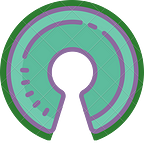3 Free Open-source Content Management Systems — Python
Here is a list of python based CMS (Content Management System) that is used by many companies and have a large community backing. These can be integrated with free as well as premium themes.
Django CMS
Django CMS was first released in 2007, Django CMS is built with the Django framework, a powerful tech stack that allows enterprises to have their whole digital ecosystem on one single stack.
With its lightweight core, django CMS allows developers to integrate other existing Django applications rapidly, or build brand new compatible apps. The intuitive frontend editing makes it easy to use for content managers, content editors, and website administrators.
Simply install django CMS in your environment with docker.
$ git clone git@github.com:django-cms/django-cms-quickstart.git
$ cd django-cms-quickstart
$ docker compose build web && docker compose up -d database_default
$ docker compose run web python manage.py migrate && docker compose run web python manage.py createsuperuser
$ docker compose up -dDjango CMS
Indico is:
- A 🗓 general-purpose event management tool fully web-based 🌍, 🧩 feature-rich but also extensible through the use of plugins, made at CERN, the place where the web was born!
Features
- A powerful and flexible hierarchical content management system for events.
- 📢 Call for Abstracts and abstract reviewing modules.
- 📝 Flexible registration form creation and configuration.
- Integration with existing payment systems.
- A paper reviewing workflow.
- A drag and drop timetable management interface.
- A simple badge editor with the possibility to print badges and tickets for participants;
- Tools for meeting management and archival of presentation materials.
- A powerful room booking interface.
- Integration with existing video conferencing solutions.
Kotti
Built on top of a number of best-of-breed software components, most notably Pyramid and SQLAlchemy, Kotti introduces only a few concepts of its own, thus hopefully keeping the learning curve flat for the developer.
Kotti CMS is a content management system that’s heavily inspired by Plone. Its main features are:
- User-friendliness: editors can edit content where it appears; thus the edit interface is contextual and intuitive
- WYSIWYG editor: includes a rich text editor
- Responsive design: Kotti builds on Bootstrap, which looks good both on desktop and mobile
- Templating: you can extend the CMS with your own look & feel with almost no programming required
- Add-ons: install a variety of add-ons and customize them as well as many aspects of the built-in CMS by use of an INI configuration file
- Security: the advanced user and permissions management is intuitive and scales to fit the requirements of large organizations
- Internationalized: the user interface is fully translatable, Unicode is used everywhere to store data
